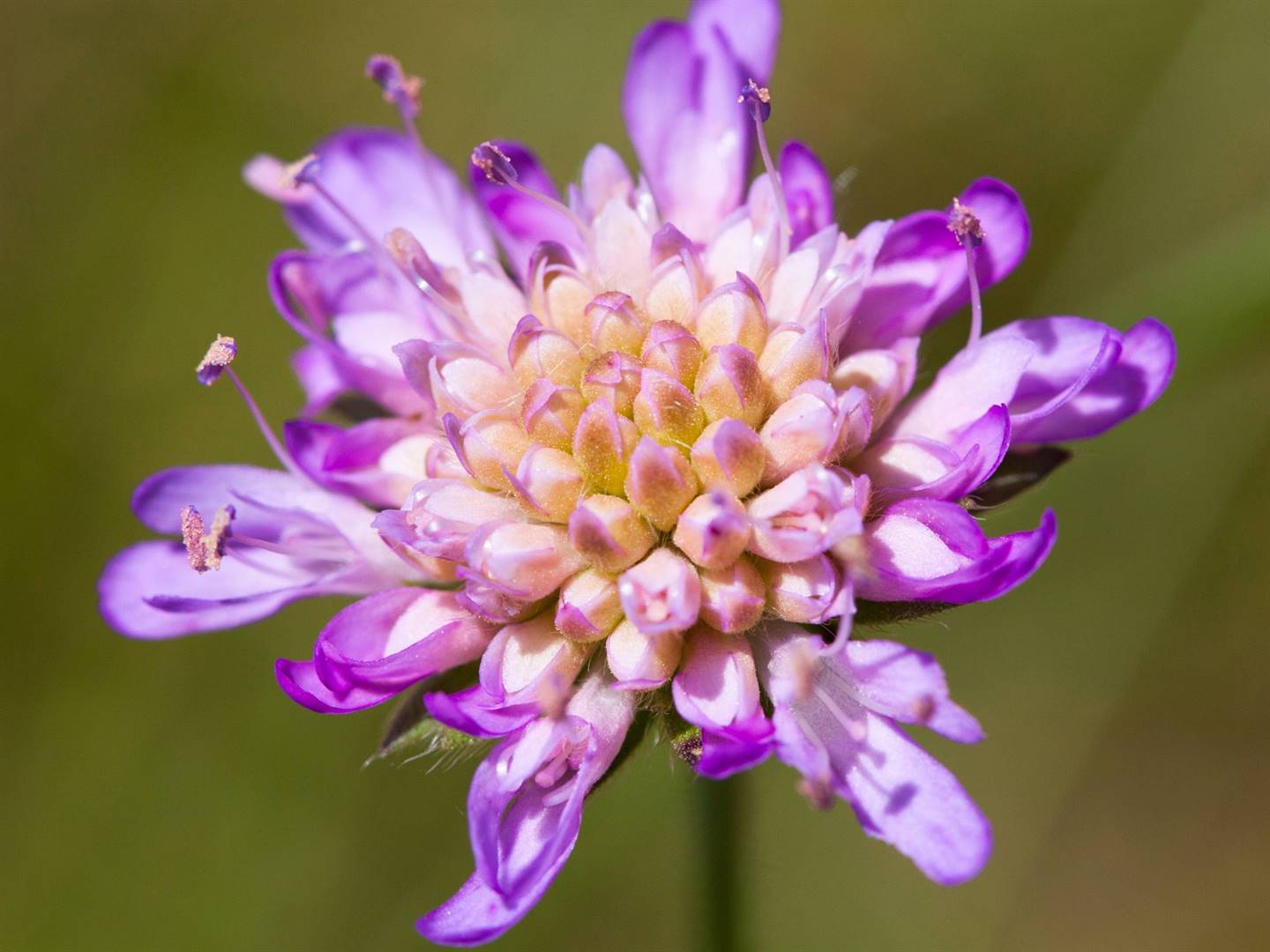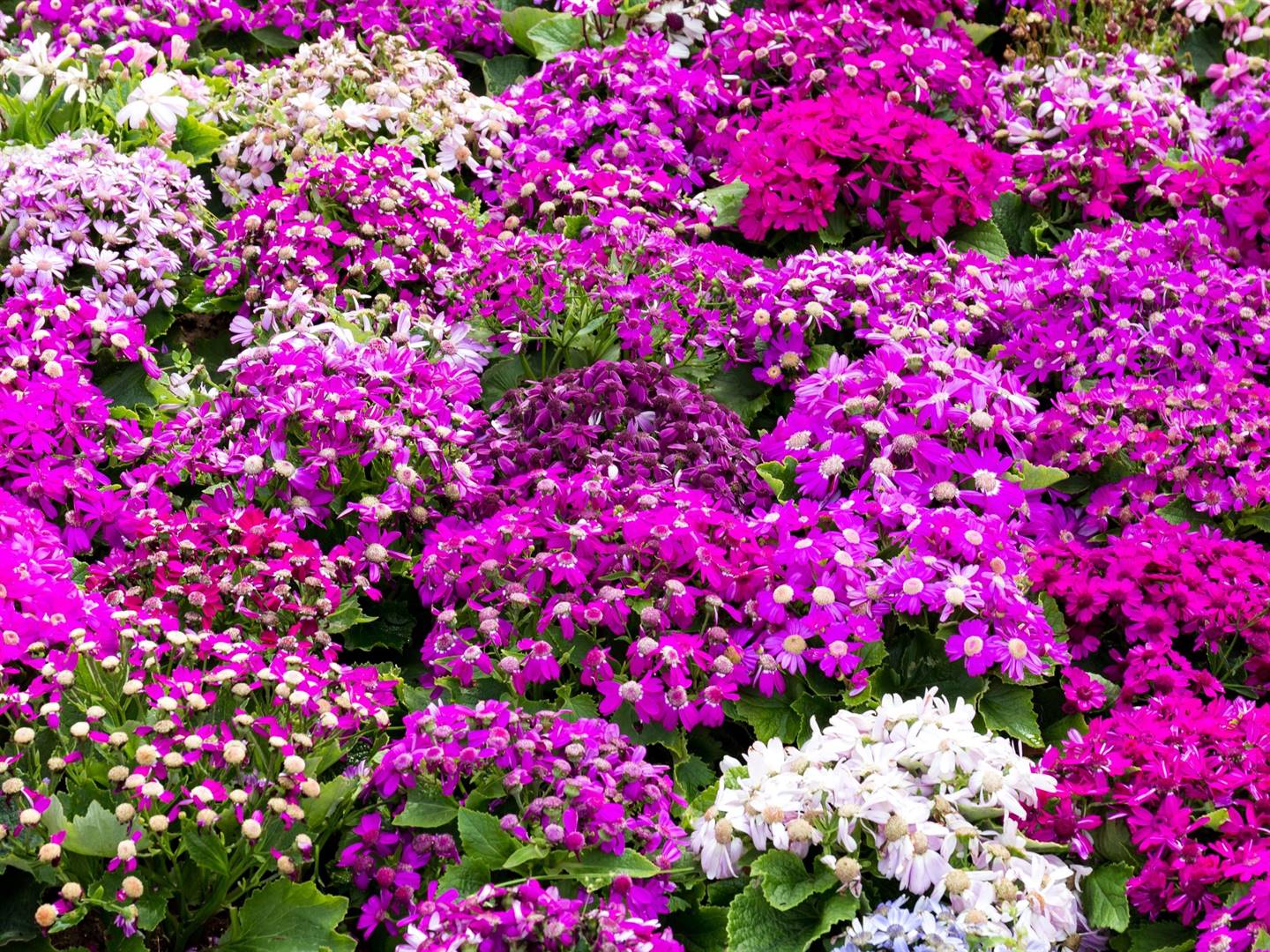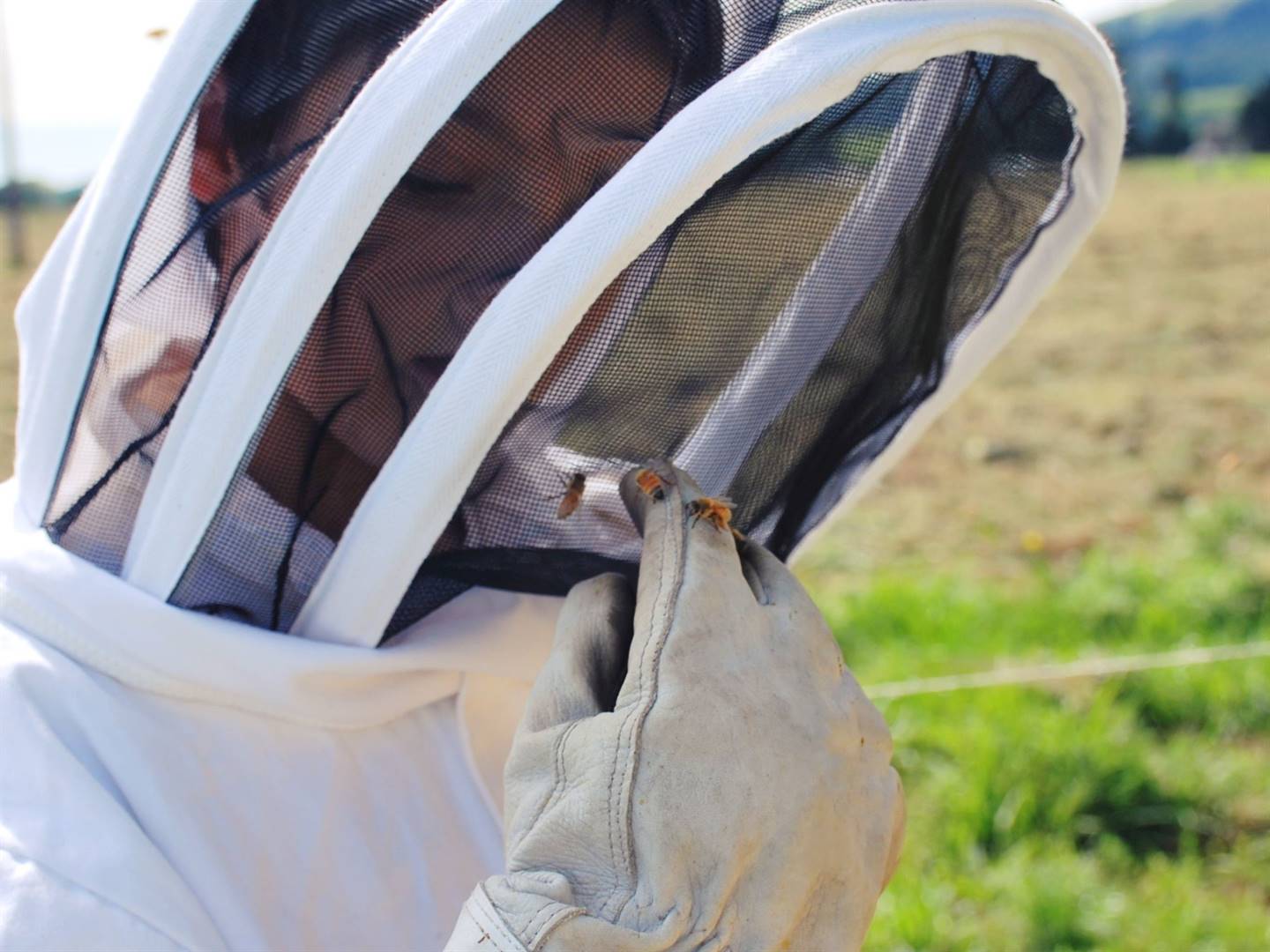Whether you live on a plot or farm, in a townhouse or flat – the enchanting world of beehives, honey extraction, bee courses and baked goods is available to you. If you cannot have your own hives due to restricted space, you can still help bees along with the right plants in your garden.
Blooms for bees
So, you want to contribute to a bee colony? Ready to support our country’s food chain and add to your garden’s wildlife? Planting blooms for bees makes you an essential service part of the beehive process. After all, one in every three mouthfuls of food is because of bee crop pollination – how is that for some perspective.
Research suggests that bees prefer blue, purple and yellow flowers. There are exceptions, however, such as orange aloe flowers, and the white flowers of the white pear (Apodytes dimidiata).
Bees also tend to favour flowers that stand out from their surroundings, are planted in blocks of colour, or are available in a large group. This means that they can harvest more pollen and nectar without using up too much energy searching for flowers.
It is important that the hard-working honeybees reserve enough energy to get back to the hive. Always have a freshwater source nearby and plant the following plants according to your region and growing season (ask your garden centre assistant for advice on which plants to grow where and when):
- Acacia species, particularly Acacia karroo (Vachellia karroo) – sweet thorn (tree)
- Agathosma ovata and cultivars – buchu (perennial)
- Anchusa capensis
- Aloe species, espcially Aloe marlothii and Aloe ferox – bitter Aloe (large succulent)
- Anisodontea "classic cerise" – pink mallow
- Apodytes dimidiata – white pear (tree)
- Buddleja saligna – false olive (tree/large shrub)
- Buddleja salviifolia – sagewood (tree/large shrub)
- Bulbine natalensis – broad-leaved bulbine (succulent perennial)
- Bulbine frutescens – stalked bulbine (succulent perennial)
- Combretum erythrophyllum – river bushwillow (tree)
- Combretum krausii – forest bushwillow (tree)
- Crassula capitella "camp fire" – campfire crassula (succulent perennial)
- Crassula Morgan’s beauty (succulent perennial)
- Crassula multicava "purple" – fairy crassula (succulent perennial)
- Cunonia capensis – red alder (tree)
- Delosperma tradescantioides (succulent groundcover)
- Delosperma versicolor (succulent groundcover)
- Drosanthemum hispidum
- Eriocephalus africanus – wild rosemary (shrub)
- Freylinia tropica "Blue" – blue honeybell bush (shrub)
- Gazania rigens var. leucolaena – trailing gazania (groundcover)
- Halleria lucida – tree fuschia (tree)
- Justicia petiolaris – blue justicia (shrub)
- Melianthus comosus – feather touch-me-not (shrub)
- Nymphoides indica – blue water lily (water plant)
- Oscularia lunata (succulent groundcover)
- Rothmannia globosa – September bells (tree)
- Scabiosa africana – Cape scabious (perennial groundcover)
- Scabiosa columbaria – wild scabiosa (perennial groundcover)
- Scadoxus puniceus (including tall Natal form) – paint brush (bulb)
- Senecio barbetonicus – succulent bush senecio (succulent shrub)
- Tetradenia riparia – ginger bush / misty plume bush (shrub)
- Zantedeschia aethiopica – arum lily (bulb / rhizome)
- Ziziphus mucronata – buffalo thorn (tree)
Try this: If you would like to home some bees in the backyard, you are legally permitted to have a bee hotel, which you can purchase from your garden centre that is a member of the Garden Centre Association (GCA) or build it yourself. These cute hotels home the solitary bee – one of 1 300 species found in South Africa, which do not produce honey or have a queen, making them very unlikely to be aggressive or sting. These bees like their own home amongst neighbours and are still extremely important and efficient pollinators in our agricultural, natural and urban landscapes.
Beekeeping has a few rules
There are specific bylaws for proper beekeeping stipulated by the Metropolitan Municipality Public Health. You cannot own a hive on your balcony in the suburbs, for example, but you can go on an epic beekeeping course and tend to a hive away from home.
For our plot and farm dwellers to have sufficient space, here is a brief overview of the current laws. No person may keep bees on any premises unless that person is the holder of a permit authorising that activity, and every beehive is situated: a minimum of 5 m from any boundary of the premises; a minimum of 20 m from any public place or building used for human habitation or from any place used for the keeping of animals. The bees need to be kept in an approved beehive and the beehive must be kept in an area inaccessible to children and animals, kept in the shade at all times, and supplied with a source of drinking water within 5 m of the hive.
It is important for beekeepers to register with The South African Bee Industry Organisation (Sabio) so that their set-up is in accordance with the regulation standards. This is to ensure all bees live a happy life and to prevent accidents or injuries to your neighbours.
Try this
If you cannot meet the beekeeping regulations but still want to be part of the magic, join a beekeeping training course that still gives you all the benefits of the experience. Learn how to understand bee language, harvest honey, and get thrilling hands-on experience in the field.
Here are some beekeeping courses around the country and websites:
- Pretoria: https://www.bhive.co.za/product-category/beekeeping-courses/
- Johannesburg and Cape Town: https://beeware.co.za/beginner-beekeeping-course
- Western Cape: https://www.honeywoodfarm.co.za/about/bee-course
- KwaZulu-Natal: https://bushveldbees.co.za/training/
Beekeeping is not just a hobby, as once you get into it there is a whole world of adventure, creativity, learning and expertise ever unfolding.
- Information provided by Life is a Garden.




 Publications
Publications
 Partners
Partners



























